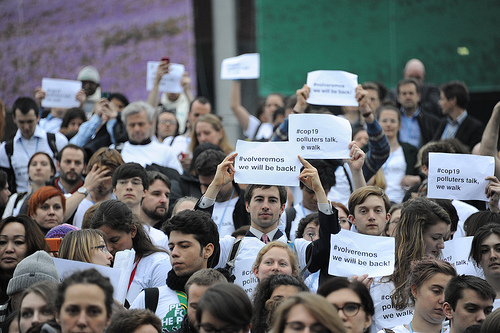COP19: Compromise Deal Steadies Road to Paris in 2015
It might have taken an extra day, but it now seems it was worth it ? to strike a compromise agreement that has largely steadied the international negotaition process towards a universal and legally binding climate agreement in Paris in 2015.
By late Friday, November 22 when the United Nations Climate talks were officially suppose to close in the Polish capital, Warsaw, differences between Parties looked irreconcilable. But thanks to the determination of all ? consensus was reached on on some of the most divisive, polarizing and controversial issues such as emissions reduction targets, loss and damage, and long term climate finance.
Key Points of Warsaw Climate Deal:
Ahead of Paris 2015:
- Parties should volunteer emissions reduction targets well in advance of a Paris conference in 2015 where a legally binding climate deal must be signed.
- Parties ready to do so must announce their contributions not commitments by the first quarter of 2015.
- By the time parties meet for COP20 in Lima, Peru next year, a draft negotiating text must be ready for consideration.
- Countries were urged to do what they can to significantly reduce emissions in the run-up to 2020 when the new pact must enter into force.
- Nations pledged $280 million to fund low income country projects in emissions from deforestation and forest degradation ? a UN program known as REDD+.
- $100 million was pledged for the Adaptation Fund, a UN fund that helps poor countries deal with the effects of climate change.
- Developed Countries were urged to deliver increasing levels of public finance for climate aid to low-income countries and quickly capitalize the Green Climate Fund
- A "Warsaw international mechanism for loss and damage was set up to assist vulnerable countries deal with future harm from climate damages.
- These damages include sudden extreme weather events like storms, but also slow-onset events like land-encroaching sea level rise or desertification.
- The structure, mandate and effectiveness of the mechanism must be reviewed by 2016
This is with respect to the key conclusions of the Warsaw climate talks.



